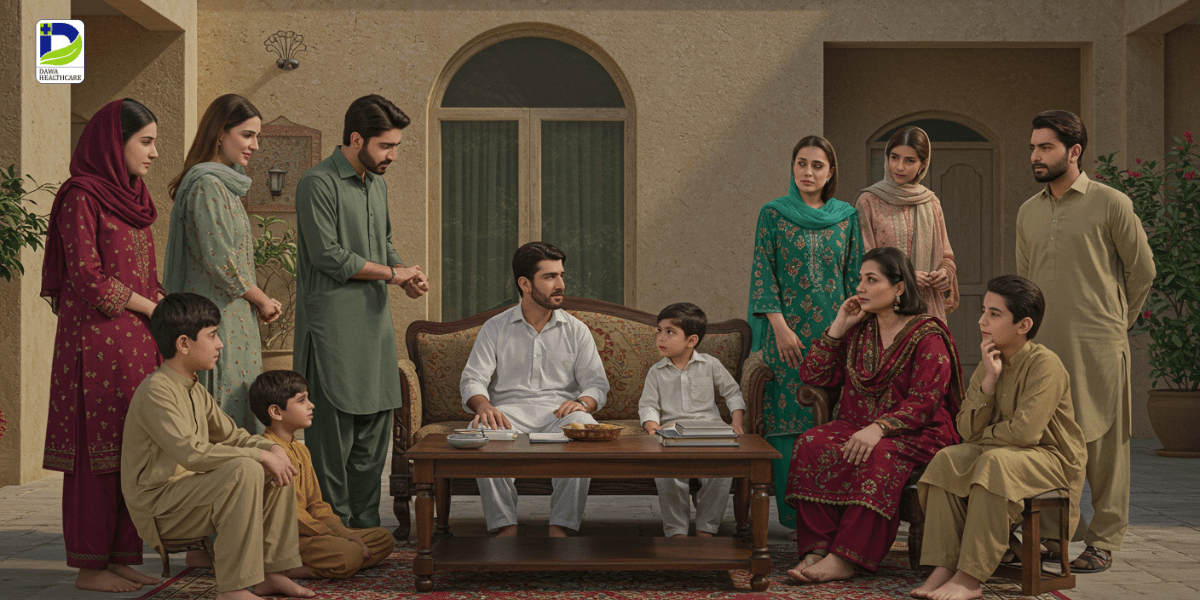
Why Mental Health Should Be Discussed More in Pakistani Families
In Pakistani society, the topic of mental health is still surrounded by stigma, silence, and misunderstanding. While conversations around emotional well-being are gaining traction globally, many families in Pakistan continue to treat mental struggles as taboo. This lack of openness and understanding contributes to a growing crisis—one that affects people of all ages, genders, and backgrounds.
Mental health isn’t something to be whispered about behind closed doors. It warrants equal consideration and focuses on physical well-being. In fact, without good mental health, no one can truly function at their best, whether at work, in relationships, or in everyday life.
The Current State of Mental Health Awareness in Pakistan
Despite a rise in social media campaigns and occasional media coverage, mental health awareness in Pakistan remains worryingly low. Many people don’t even realize that what they are feeling—whether it's persistent sadness, loss of interest in life, or constant worry—may actually be symptoms of a mental health condition. Instead, these emotions are dismissed as laziness, weakness, or a lack of faith.
Mental health disorders like depression, anxiety, bipolar disorder, and PTSD are not rare. Yet, professional help is rarely sought. In rural areas especially, people often turn to spiritual healers rather than qualified mental health professionals. Even in urban cities like Karachi, there’s a lack of accessible and affordable mental health services for the average person.
The Stigma Around Mental Health in Families
A major reason why mental health is ignored is the stigma around mental health in families. Talking about emotional difficulties is often seen as a sign of weakness or madness. Children are told to “toughen up,” men are discouraged from expressing emotions, and women’s mental health struggles are blamed on hormones or their personal failings.
Parents may genuinely care, but they often lack the tools and awareness to recognize mental illness or respond compassionately. Many believe that praying more or staying busy will automatically solve everything. While faith and activity have their place, they are not substitutes for therapy or medication when needed.
This stigma doesn’t just discourage people from seeking help—it creates shame, loneliness, and in some cases, leads to tragic outcomes like self-harm or suicide.
Why Mental Health Matters in Desi Culture
In desi culture, emotions are often brushed aside to maintain family honor or to avoid community gossip. The mentality of “log kya kahenge” (what will people say) has caused significant harm to those who are quietly enduring their struggles. Individuals prioritize their image over genuine well-being. However, the reality is that mental health is important—not just for individuals but also for whole families.
But the truth is, mental health matters—not just for individuals but for entire families. A mother with untreated depression may struggle to connect with her children. A stressed father may take his frustration out on loved ones. A child with anxiety might underperform in school despite having potential.
We cannot expect a healthy society when mental suffering is ignored within homes. Open conversations, acceptance, and emotional support are essential to building strong family bonds and happier lives.
Breaking the Silence: How Families Can Help
Changing the mindset won’t happen overnight, but small steps can create lasting impact. Here are ways families can promote improved mental well-being:
-
Start with Listening: If someone opens up, don’t interrupt or dismiss their feelings. Listen with empathy.
-
Avoid Judgement: Mental illness isn’t a character flaw. It’s a health issue that needs compassion and care.
-
Educate Yourselves: Learn about common mental health conditions so you can recognize the signs early.
-
Normalize Therapy: Going to therapy should be seen the same way as visiting a doctor for physical illness.
-
Talk Regularly: Create space in your home for honest conversations, even if it feels uncomfortable at first.
Your Mental Health Partners: Dawa Healthcare and DHC Pharmacy
Thankfully, there are now more resources available for those who want to prioritize their mental well-being. Dawa Healthcare and DHC Pharmacy, known as the best medical store in Karachi, is committed to supporting both physical and emotional health. From safe, prescription-based access to antidepressants and anxiety medications to guidance on holistic wellness products, we provide solutions for every step of your journey.
Our team understands the sensitivity around mental health, especially in desi households. That’s why we offer discreet and professional service, ensuring you feel safe and respected.
Why This Conversation Can’t Wait
We frequently delay discussions about mental health until a serious event occurs—a crisis, a broken relationship, or even a suicide. However, by that point, the harm may have already been inflicted. It’s time we brought this conversation out of the shadows and into our living rooms.
If you're struggling, know that you're not alone. And if someone in your family seems withdrawn, angry, or unusually quiet, don’t ignore it. Check in. Ask how they’re really doing. Let them know it's okay to talk, to feel, and to ask for help.
We must remember that mental health awareness in Pakistan starts at home—with open minds and kind hearts. And when we support each other emotionally, we build families that heal together and grow stronger.
Final Words
In a society where physical illness gets sympathy but mental pain gets silence, let’s be the generation that changes the narrative. Let’s talk, listen, and support one another. Because mental health isn’t just personal—it’s a family matter. And for every step you take toward better well-being, Dawa Healthcare and DHC Pharmacy, your trusted medical store in Karachi, is here to support you.
